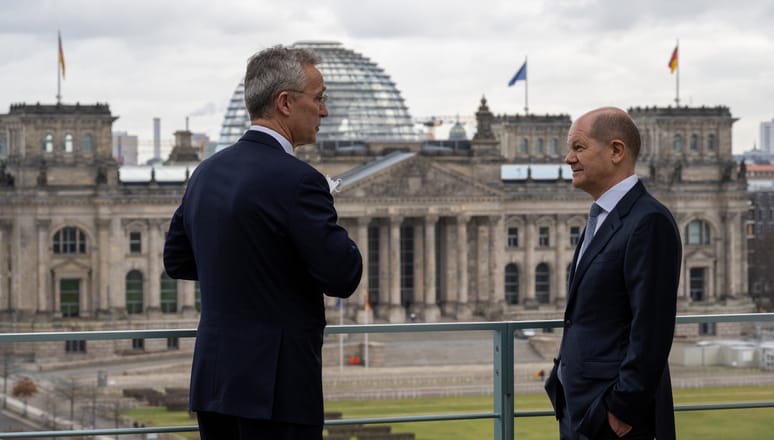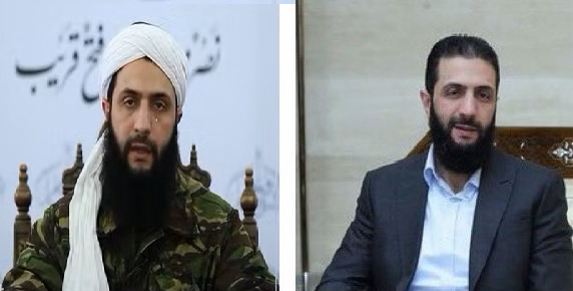What If … Germany Had Prevented the Russia-Ukraine War?

Share
What if, in December 2021, the German government had charted a different diplomatic course for Europe and stalled the war between Russia and Ukraine? Following the piece where we examined the possible reasons behind Germany’s approach to Russia in the leadup to the Russia-Ukraine war, and the impact of this decision on its regional and global standing, we will explore how key decisions could have led to a potentially altered outcome for Germany.
This exercise will visualize, through exploring a potential alternative timeline, how different decisions by the German government could have impacted both regional and global dynamics. It will also help identify the lost opportunity costs, and help in assessing whether the decisions made were the most suitable given available information at the time.
It is worth noting that the German government, in the lead up to the war, did attempt to stall, indicating some understanding of the potential costs of adopting the collective NATO positions. When it did so, it faced considerable pressure both in public and behind closed doors to change its position and align with NATO, even being accused of undermining NATO unity.
To keep this alternate scenario grounded, we will stick to information that Germany’s leaders had at their disposal in 2021, ensuring that the outcomes are realistic and plausible, rather than an exercise in hindsight. The approach is meant to highlight the potentials of considering alternative scenarios when making decisions, and illustrate the value of understanding opportunity costs when formulating foreign policy.
German Alignment
In the period under consideration, the government was newly elected, with the Chancellor and minister of foreign affairs assuming their responsibilities in December of 2021 in the middle of the evolving crisis between Russia, Ukraine and NATO. The Nord Stream 2 pipeline between Russia and Germany was completed, to the displeasure of the US that watching the unfolding events closely.
The US intensified its diplomatic campaign in European capitals, pressuring Germany to adopt its position on Russia’s next moves; it sought through this campaign to unify the collective European position behind its position on Russia's mobilization near Ukraine, and to ensure that NATO, rather than the EU, would be the primary driver of European engagement with Russia.
Germany’s newly appointed Chancellor was eventually swayed to align with the NATO position, even agreeing beforehand to include the Nord Stream Pipelines within possible sanctions program directed against Russia.
In aligning with the US and agreeing to include the Pipelines in the sanctions program, Germany may have foregone an opportunity to leverage its energy and economic relations with Russia and avoid the conflict. In skewing its alignment toward the broader NATO position, Germany reduced its ability to position itself as a bridge between Europe and Russia, and took a step back in favor of collective action led by the US under the umbrella of NATO. The rest is history.
The question before us therefore becomes what if Germany had chosen a different approach? Instead of aligning with the US position, we explore what might have happened had Germany taken a more independent path by mediating with Russia and preempting the Ukraine conflict. We will consider why it may have chosen to do so, what steps it could have taken in that direction, and the viability of those steps given the stakes on the regional and global fronts. We will explore the challenges it would have faced and the viability of this position and its chances of success.
An Alternate Timeline

December 2021, upon taking office, Chancellor Olaf Scholz and Foreign Minister Annalena Baerbock are quickly pressured by the US to present a unified Euro-American front on Russia. They are presented with intelligence gathered by the US on Russian mobilization, and urged to announce their readiness to impose sanctions on Russia that would include the Nord Stream pipelines.
The US, through a multitiered diplomatic approach to Germany, creates an impending sense of urgency and unavoidability of the coming Russian invasion of Ukraine, while presenting intelligence on Russian mobilization and insisting on sanctions against Moscow, including Nord Stream.
Instead of adopting the US position as happened in our timeline, the German government instead takes a different approach. It intensifies its communication channels with Russia, seeking to identify the justifications for the mobilization, and pressuring the Russian government to back down. It leverages the support of France for this approach, given that it was alreadly leaning more towards a euro led approach, and was unconvinced of the inevitability of Russia's attack even when presented with the intelligence gathered by the US.
Through multiple channels of communication, and enhancing diplomatic engagement with EU and NATO members most likely to be directly affected or threatened by a war between Russia and Ukraine, it manages to leverage its position in Europe and its engagement with Russia to stall tensions.
In a race between US and German diplomacy, the latter is faced with considerable challenges. On the Russian front, it has a tight timeframe to engage Russian self interest and convince it to reduce its aggressive posturing on the Ukrainian borders. To successfully to that, it has to provide certain assurances regarding NATO and EU positions on the issue, predicating mobilizing its diplomatic resources throughout the EU, with the support of France, to mitigate any inclination to escalate the situation.
It could have also proposed alternative initiatives as successors to the Steinmeier Formula and the Minsk Agreements, with the understanding that they will most likely fail but that they will serve the crucial purpose of delaying conflict and buy the German and French governments enough time to consider longer term solutions.
Channeling its exceptional resources and the wealth of experience of their agencies, the German government in this alternate timeline identifies an important divergence of interests between itself and the US when it comes to the European arena. The US seeks to avoid excessively close relations between Germany and Russia and ensure NATO -rather than EU- primacy in setting joint continental goals, all while maintaining an adversarial approach to Russia that would discourage closer cooperation and integration with Europe. The US would not welcome an EU-Russia integration that could effectively neutralize current European security concerns because that could potentially reduce US influence on EU states and their commitment to NATO.
The US government is starkly aware at this point that an integrated Euro-Russian conglomerate could not only shift regional power dynamics, but also lay the foundation for an entirely different global power structure. A consolidated Europe with Russia as a partner could possibly become a power pole in an increasingly multipolar world. The territorial contiguity of the continental landmass and the increasing interdependence between them would entail a convergence of interests between Europe and Russia that would sideline US priorities on both the continental and global levels. As a result of those considerations, and because this integration could potentially create a potential rival to US hegemony on the global scale, it had to ensure that this outcome did not materialize.
From the German point of view, this merging of interests between Russia and Germany, may just have been the game changer for stability across continental Europe. With complementing interests borne out of economic cooperation -which was one of the drivers behind the Nord Stream pipelines, the adversarial nature of engagement between Europe and Russia could be substituted for a more amicable approach. In intertwining their interests, and through enhanced cooperation, Germany would have been able to implement the words of Abraham Lincoln, when he said “do I not destroy my enemies when I make them my friends?”
In this alternate 2022, Germany, in implementing a realpolitik approach to the situation, separates between its role as a NATO member and its role as an EU country. Identifying a subtle yet important separation between the priorities of the two overlapping yet distinct entities, it realizes that prioritizing its NATO alignment over its European role would cement an oppositional approach to Russia (as we observe in our current timeline), that not only would solidify the perpetual state of threat from the east, but would also be largely outside of German control. With influential actors within the alliance that are able to instigate problems with Russia, Germany’s alignment to the bloc's positions relegates it to a reactive rather than proactive position.
In this timeline, Germany identifies the latent potential of the EU Common Security and Defense Policy and the European Defense Agency, it opts to stall US -and by proxy NATO- attempts to harden Europe’s position toward Russia. It mobilizes its own leverage with Russia, independent from the US position, and persuades Russia to hold off from its offensive on Ukraine. Without German, French, and broader European consensus on adopting a hardline position, Russia is more amenable to soften its own position. Observing the misalignment between the US and Germany, Russia engages positively with Germany in order to capitalize on the situation and separate between US and European interests, a move that suits Germany’s interests well.
Conflict Free Europe
In this alternative scenario, February of 2022 unfolds without war, and German diplomatic engagement with Russia is consistent. Negotiations on disputed territories proceed relatively conflict free, with all parties recognizing that war would weaken their positions. Ukraine would risk losing its negotiation leverage, the EU would risk regressing to a secondary role contingent on US interests, and Russia would risk alienating countries in the region that are already precariously concerned about further Russian offensives. At that point, any overt aggression by Russia would irrevocably crack any existent goodwill and play into the broader US strategy of alienating it from Europe.
The US, seeking to restore NATO priorities in Europe, relentlessly pursues a strategy to restore the mutual suspicion between Russia and Europe seen in late 2021. Germany, in a cat and mouse game with its ally, pursues a counterstrategy to assuage doubts and reign in any erratic moves by Russia. In parallel to its softer approach to Russia, and hedging its bets against possible Russian maneuvers, it leads a European engagement strategy on multiple fronts globally to secure alternatives for Russian energy to Europe. It also holds in its back pocket the possibility of reprioritizing NATO positions as a deterrent to Russia.
In this less polarized world, Russia may not be as effective in broadening its relations with the Global South. In the absence of war, galvanizing the Global South toward alternatives to Europe and North America would be more challenging; in this scenario, Europe is viewed as a rational and moderate partner capable of restraint and fostering stability.
In our timeline Russia deftly maneuvered on the international arena to highlight the importance of seeking alternatives to Western partners; through effectively shining a spotlight on western double standards on global issues, it managed to portray itself as a more amenable partner across various regions. China, capitalizing on the opportunity, drove the momentum and accelerated this process significantly.
In the absence of the war in Ukraine, much of the momentum behind Russia and China expanding and consolidating their relations with the Global South could have been slowed down; there is no inciting incident to point to, and no perceived instigation of conflict at the behest of the US or Europe for either country to leverage as a talking point in their engagements.
In this alternate reality, Germany manages to stall and gain enough time to ensure that Russian and European interests are in figuring out the way forward without conflict. With greater engagement of both sides, there is more to lose in case of a conflict; the motivation to find alternatives to war outweigh its benefits.
As a key player in achieving continental stability, Germany becomes the fulcrum of European-Russian relations. It assumes a leadership role of developing European security policies that revolve primarily around the stability and peace in Europe; the EU Common Security and Defense Policy and the European Defense Agency assume a more central role in achieving these goals.
Unlike NATO, which is a defense-oriented alliance, the EU is broader in scope and therefore does not reflexively approach every problem or dispute through a narrow defense/security lens; after all, if all you have is a hammer, every problem looks like a nail, but if you have a toolbox at your disposal your perspective broadens.
A comparatively stable Europe and a more amenable Russia, the situation remains complicated but not precipitously or inevitably pointed toward conflict.
German Interests
By taking a more independent and calculated position on Russia, Germany could have avoided the significant opportunity costs it now faces: diminished diplomatic leverage, weakened economic ties with Russia, and a weakened position in its US and NATO relations. While relations remain strong, and the strategic partnership remains steadfast, it is not a pairing of equals with the US taking the leading role.
Successfully averting war through German-Russian cooperation could have positioned it to become a nexus point of Eurasian affairs, while empowering its political leverage regionally – in Europe and Central Asia in particular- and globally. In successfully preventing war on mainland Europe, Germany becomes a political and economic gateway to Europe.
As gatekeeper to European stability, it would have also gained leverage with the US and elevate its status from that of junior partner to a more equitable role and achieve further independence in setting its foreign policy strategic outlook, which is currently partially shaped by NATO and US considerations. In attaining a greater modicum of independence, it could not only realign its foreign policy more with its broader strategic goals, but it could also influence EU policy in accordance with its own interests rather than those of NATO and the US. Averting sanctions could have shielded Germany from the immediate economic downturn, allowing it to maintain energy security while seeking alternatives at its own pace.
There are, therefore, national, regional, and global opportunities that could have encouraged Germany to consider adopting this position. It had potential immediate returns, in addition to medium and long term returns.
Oversight, or Reluctance to Risk?
For the German government, taking a decision that goes against the grain of its regular modus operandi would have been difficult for many reasons, particularly in the context of a newly appointed government that was still finding its footing. In addition to challenging its institutional operational assumptions however, there are a number of reasons that, even if the German government were aware -which it was as evidenced by its attempts to stall the conflict- of the potentials of taking the more moderate approach as opposed to the NATO aligned one it took, it may have opted not to.
The challenges of juggling an erratic Russia that views NATO encroachment as an existential threat, and a US bent on separating Russia and Europe is, to put it mildly, a complicated matter. The US is very proactive in its engagements with European governments, and has extensive influence with decision makers across the continent.
If it surmised that Germany, for whatever reason, was trying to gather support across Europe for a position in opposition to its own, it would have wielded its considerable diplomatic and intelligence resources to negate those efforts. Therefore, success on the European front would not have been guaranteed; if it failed at gathering support, it would have possibly ended up in the same position it finds itself in today (or worse) but with the added concerns of a US government that views it with suspicion.
As for Russia, it is not entirely predictable. For instance, developments on the internal Russian front could have forced foreign policy decisions in certain directions regardless of the environment, and Germany as the mediator would have been held responsible for any of its erratic moves, and for not supporting European and NATO consensus. If Germany had attempted to mediate and failed, with Russia ultimately launching an attack on Ukraine anyway, it would have had to expend considerable time and effort in regaining European and American trust and influence.
Further complicating matters, Germany would have had to address concerns of more vulnerable European and NATO members. For numerous historical and contemporary reasons, countries on the eastern edge of Europe view Russia with suspicion, and may be reluctant to risk their security concerns, viewing the appeasement of Russia as encouragement to engage in more expansion in the region.
Germany's efforts to allay their concerns would be occurring in parallel to American efforts geared toward amplifying them. The US, to secure the support of NATO and EU members in Eastern Europe, would have engaged in a similar manner to what it did in late 2021, when it pursued a concerted diplomatic and intelligence campaign to influence European positions on Russia.
There are, therefore, numerous considerations ranging from internal issues within the German government, to the large number of variables it would have to handle externally, and the costs of potential failure, that may have led Germany to take the familiar route of staying within the sphere of US ad NATO influence.
What If?
The decisions made by the newly formed German government in early 2022 set the course for the years to come. It defined its role within NATO and Europe, as well as its relations with the US and Russia. By extension, they impacted Germany’s positions on other matters of global concern and consequently its current global perception. They also affected its internal economic and political dynamics, shaping the state of affairs on the political and economic fronts.
In this exploration of Germany’s potential alternate actions regarding the Russian-Ukraine war, we looked at how different decisions at key moments could have reshaped both regional and global dynamics. By considering an independent approach—one that mediated between Russia and Europe instead of aligning fully with the US and NATO—Germany could have averted conflict and positioned itself as a more influential regional and global actor. The alternative scenario reveals not only the strategic gains that Germany might have achieved but also the opportunity costs of the decisions it ultimately made.
On the other hand, the exercise also highlighted the risks associated with the alternative timeline, the potential crack in trust between the US and Germany, the accusations of fostering instability in Europe, and if it had failed to avert the conflict, being blamed for exposing weakness in NATO and enabling Russia's aggression through appeasement.
This exercise highlights the importance of weighing multiple scenarios when making foreign policy decisions. Every decision at key junctures impacts the broader political, economic, and security landscape. Understanding these opportunity costs, and weighing different scenarios before committing to a course of action, is crucial for decision-making. In doing so, governments can better assess risks, rewards, and the long-term implications of their choices on both the domestic and global stage.

